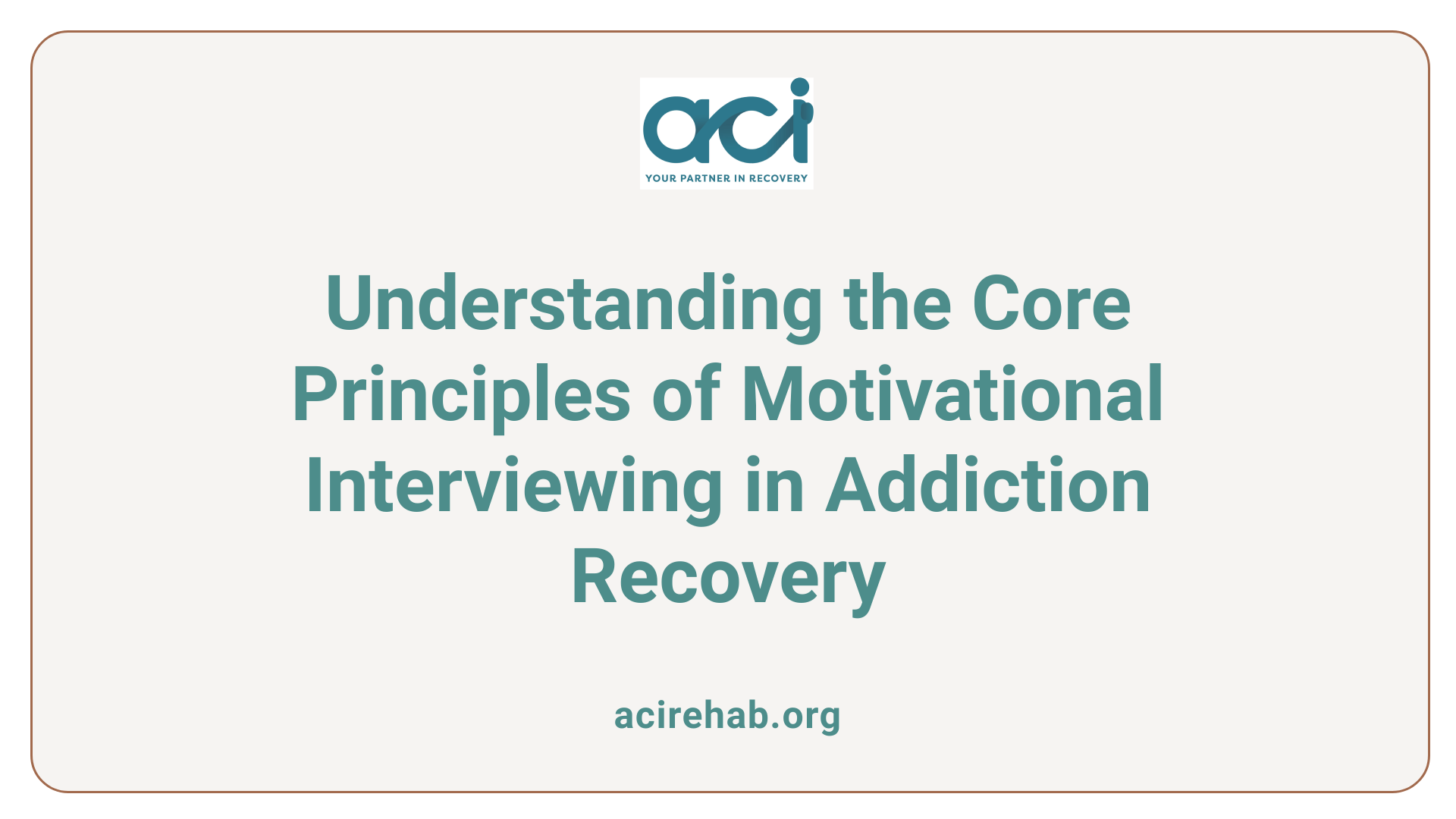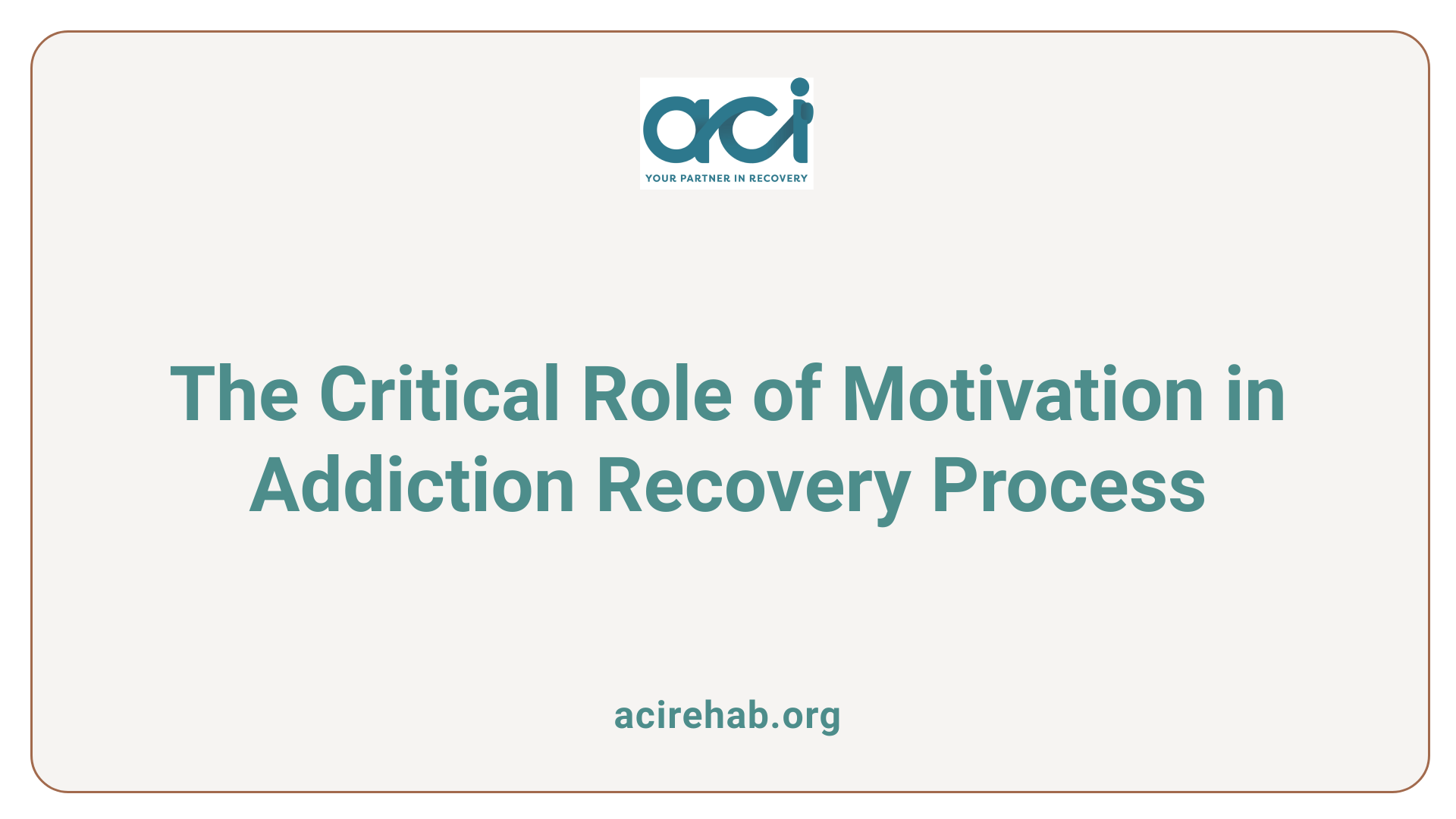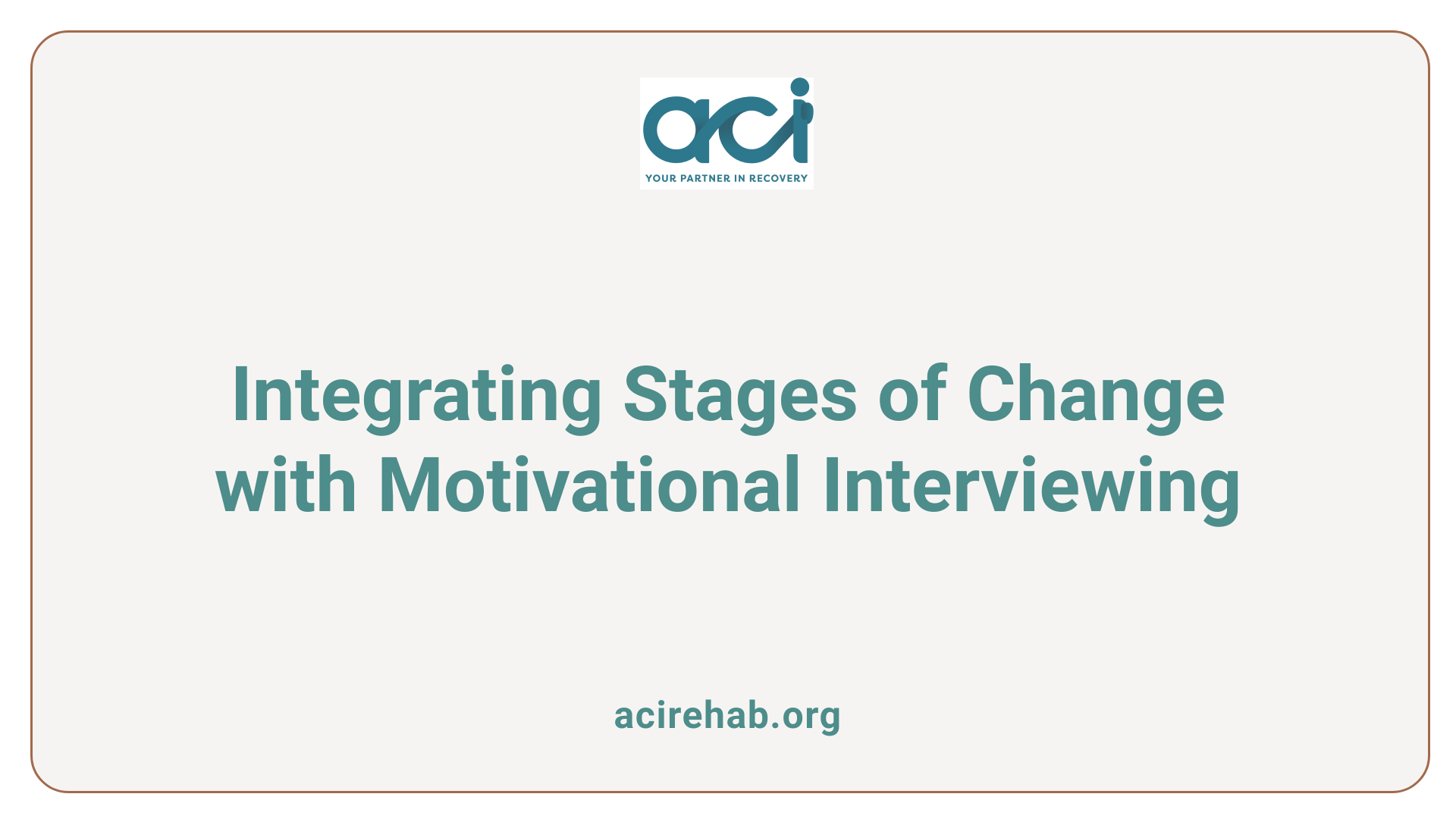Introduction to Motivational Interviewing
Motivational Interviewing (MI) emerges as a transformative counseling approach that significantly aids individuals struggling with substance use disorders by resolving ambivalence and enhancing motivation for change. Originally developed in the 1980s by psychologists William Miller and Stephen Rollnick, MI is grounded in the belief that motivation and commitment are crucial for overcoming addiction. This article delves deep into the multifaceted nature of MI, exploring its foundational principles, methodologies, effectiveness, and its integration with other therapeutic strategies in addiction recovery.
The Fundamentals of Motivational Interviewing

What is motivational interviewing and how does it help in addiction recovery?
Motivational Interviewing (MI) is a person-centered counseling method designed to enhance an individual’s motivation to change by addressing ambivalence, particularly within addiction contexts. This approach helps clients articulate their feelings and attitudes towards behavior change, facilitating a deeper understanding of their motivations to overcome issues like substance use.
Components of MI
MI is built upon four core principles:
- Express Empathy: Establishes rapport and helps clients feel understood by validating their experiences.
- Develop Discrepancy: Encourages clients to recognize the gap between their current behaviors and their personal goals, fostering insight into the need for change.
- Roll with Resistance: Instead of confronting clients about their ambivalence, MI practitioners accept and explore it, promoting a non-threatening environment.
- Support Self-Efficacy: Enhances the client’s confidence in their ability to make changes, empowering them to take ownership of their recovery journey.
Role in addiction recovery
In addiction recovery, MI effectively reduces resistance and increases commitment to change, making clients more receptive to treatment. Research shows that MI can significantly reduce substance use, especially in the early stages of recovery. The approach promotes a collaborative relationship between therapist and client, highlighting patient autonomy and ensuring that the clients’ own reasons for change are at the forefront of the therapeutic dialogue. This process not only enhances engagement but also leads to improved treatment retention and ultimately greater chances of success.
While MI has demonstrated promising outcomes, its effects can diminish over time, underscoring the need for ongoing support and possibly integrating it with other therapeutic methods for sustained impact.
Techniques and Principles of MI in Substance Use Treatment

What are some effective Motivational Interviewing techniques for addressing substance use?
Effective Motivational Interviewing (MI) techniques for addressing substance use include the use of open-ended questions, reflective listening, affirmations, and summarizing, commonly referred to as OARS. These approaches create a supportive environment that encourages individuals to delve into their ambivalent feelings about change.
Additionally, practitioners employ the RULE principles:
- Resist the righting reflex: Avoid correcting the client’s behavior directly.
- Understand patients’ motivations: Collaborate to uncover their reasons for change.
- Listen with empathy: Validate the client’s feelings and struggles.
- Empower patients: Encourage autonomy in the decision-making process.
MI also incorporates the Stages of Change model, which enables therapists to tailor interventions based on the individual’s readiness to change. This model guides clients through various stages, from precontemplation to maintenance, aligning therapeutic efforts with the client’s current mindset.
Ultimately, MI aims to evoke change talk, fostering a strong sense of self-efficacy and commitment to overcoming challenges related to substance use, making it an integral part of effective treatment.
The Role of Motivation in Substance Abuse Recovery

What role does motivation play in the therapeutic process of substance abuse recovery?
Motivation is crucial in the therapeutic process of substance abuse recovery. It serves as a driving force that encourages individuals to engage actively in treatment and maintain lasting behavioral changes. Motivational interviewing (MI) enhances this intrinsic motivation by helping clients confront their ambivalence regarding substance use. Through MI, clients can articulate their own personal reasons for change, which fosters a greater commitment to recovery.
Research has highlighted the efficacy of MI in achieving significant reductions in substance use when compared to no treatment. One study noted that individuals who participated in MI were four times more likely to quit or reduce their tobacco use. Although the effects of MI may decrease over time, the approach continues to yield better treatment retention and engagement.
How does MI impact treatment outcomes?
MI positively influences treatment outcomes by addressing ambivalence and enhancing client motivation. Clients often report increased self-esteem and confidence due to the supportive and empathetic counseling style of MI. This method not only decreases resistance to change but also empowers clients to take responsibility for their recovery journey. Evidence suggests that MI can lead to increased retention rates and engagement in treatment sessions, fostering a collaborative client-therapist relationship that is essential for successful outcomes.
In what ways is MI versatile across settings?
The versatility of MI allows it to be effectively utilized in various settings, including primary care, addiction counseling, and the criminal justice system. Its application is particularly noted with diverse populations, such as those with alcohol use disorders or even individuals mandated to attend therapy sessions due to legal requirements. MI’s person-centered approach adapts well to individual needs, enhancing its efficacy across different therapeutic environments. Additionally, ongoing training for health professionals in MI methodologies helps expand its reach and effectiveness, which underscores the need for continued research to bolster its evidence base compared to conventional treatment methods.
| Aspect | Details | Implications |
|---|---|---|
| Motivation in Recovery | Drives individuals to engage and sustain long-term behavioral changes | Essential for treatment adherence and success |
| Impact on Outcomes | Improves treatment retention and reduces substance use | Fosters a positive therapeutic relationship |
| Versatility | Applicable in diverse settings (primary care, criminal justice, etc.) | Can adapt to various populations and needs |
Stages of Change and MI’s Supportive Role

How do the stages of change integrate with Motivational Interviewing in recovery?
The stages of change model outlines five key phases: Precontemplation, Contemplation, Preparation, Action, and Maintenance. This framework provides valuable insights into a client’s readiness for change and allows practitioners to strategically align their interventions accordingly.
Motivational Interviewing (MI) plays a pivotal role in enhancing this process by using specific techniques like Open-ended questions, Affirmations, Reflections, and Summarizing (OARS). These methods create a safe and supportive atmosphere where clients can openly explore their feelings and motivations regarding behavior change.
In the Precontemplation stage, clients may not recognize the need for change. MI helps practitioners build rapport, encouraging individuals to reflect on their ambivalence. As clients move into the Contemplation phase, MI further facilitates exploration of pros and cons, enhancing self-awareness and motivation. For those in the Preparation stage, MI assists in developing actionable plans, solidifying commitment.
In the Action phase, MI supports clients actively working toward their goals through affirmations and reflections, reinforcing their efforts. Finally, during the Maintenance stage, practitioners use MI principles to bolster self-efficacy, addressing potential relapse triggers and sustaining motivation.
Overall, the integration of MI with the stages of change significantly enriches each phase, helping clients navigate their recovery journey and achieve lasting behavioral change with enhanced self-motivation and commitment.
Exploring Effective Questions in MI
What are some examples of motivational interviewing questions used in addiction treatment?
Motivational interviewing (MI) utilizes thoughtful, open-ended questions that encourage individuals to reflect on their behaviors and recognize the impacts of their substance use. Here are some effective questions employed in MI:
-
"What do you like about using?"
This question invites clients to consider the positive aspects of their addiction, offering insights into their motivations and the benefits they perceive. -
"What concerns do you have about your substance use?"
By prompting clients to express their worries, this question helps them articulate the conflicts between their current behavior and their personal values. -
"What would you like to change about your behavior?"
This question focuses on the client’s own desires, fostering a sense of ownership over the change process.
Engaging clients through such questions is essential for establishing a trusting relationship while allowing them to explore discrepancies between their current choices and future goals.
Facilitating reflective dialogue
The essence of MI lies in facilitating reflective dialogue through techniques such as reflective listening. Counselors actively listen and respond to clients’ thoughts, reinforcing self-exploration and deepening engagement. For instance, if a client expresses reluctance about quitting, the counselor may reflect, "It sounds like part of you recognizes the need for change, but there’s a part that feels hesitant. Can you tell me more about that?" This dialogue validates the client’s feelings and encourages them to delve deeper into their ambivalence.
Encouraging change talk
A vital aspect of MI is to promote ‘change talk,’ where clients express their own reasons for wanting to change. Questions that elicit this type of dialogue might include:
- "What would your life look like if you stopped using?"
- "What are some steps you believe you could take towards change?"
This shift in conversation helps clients visualize the benefits of change and solidify their intrinsic motivations. By leading clients to articulate their own intentions, MI fosters a stronger commitment to recovery.
Therapist-Client Dynamics in MI
MI’s Collaborative Environment
Motivational Interviewing (MI) thrives on a collaborative atmosphere where therapists and clients work together. This approach emphasizes patient autonomy, allowing clients to explore their motivations and challenges without feeling dismissed or pressured. Through encouraging dialogue, clients articulate their reasons for change, fostering a sense of ownership over their recovery journey.
Therapist’s Role and Techniques
In MI, the therapist acts as a supportive guide rather than an authoritative figure. The use of techniques such as open-ended questions and reflective listening plays a critical role in engaging clients. These methods are designed to draw out insights from clients rather than imposing solutions, enhancing their intrinsic motivation. By utilizing affirmations and summarizing, therapists reinforce positive behaviors and encourage self-exploration.
Building Trust and Alliance
Establishing trust is fundamental in MI. Therapists strive to create a safe environment where clients feel understood and respected. This trust lays the foundation for a strong alliance, which is essential for effective dialogue. As clients perceive their therapist as an ally, they are more likely to engage openly, allowing for deeper discussions about their ambivalence and readiness for change.
MI’s Applicability and Limitations
Effectiveness across contexts and populations
Motivational Interviewing (MI) has proven to be a highly adaptable counseling approach. Research indicates its effectiveness in treating substance use disorders across various populations, including voluntary treatment seekers and individuals required to attend due to legal settlements. Studies suggest that clients engaged in MI are significantly more likely to reduce substance use compared to those receiving no treatment, showcasing its broad applicability.
Furthermore, MI is especially beneficial for addressing issues related to alcohol and tobacco use, showing substantial effects on cessation rates. It enhances treatment retention and engagement, with studies indicating a 15% increase in client participation when MI is employed.
Limitations and challenges
While MI is effective, it is not universally applicable. Clients with severe mental health issues may struggle with this approach, highlighting the need for trained practitioners to tailor their methods effectively. Additionally, initial skepticism from some individuals may hinder the MI process, potentially impacting outcomes.
Integration with other therapies
To maximize its benefits, MI often works best when integrated with other therapeutic methods, such as cognitive behavioral therapy. It does not tackle the underlying causes of addiction, so using it alongside more directive therapies can promote comprehensive treatment strategies. This blended approach helps address both motivational barriers and deeper psychological issues, enhancing overall recovery outcomes.
Historical Perspectives and Development of MI
MI’s Origins
Motivational Interviewing (MI) was developed by clinical psychologists Dr. William R. Miller and Stephen Rollnick in 1983. Initially focused on addressing problematic drinking behaviors, the approach emerged out of Miller’s desire to find a more empathetic and supportive way to engage clients in therapy.
The foundational premise of MI is that ambivalence about change is a common and normal experience, with the approach emphasizing the need for counselors to nurture motivation rather than impose it.
Evolution Over Time
Over the years, MI has evolved into a versatile therapeutic approach, expanding its application beyond substance use disorders. Research has corroborated its effectiveness across various settings, including mental health and chronic disease management. MI now incorporates elements from the Transtheoretical Model of Change, enhancing its relevance in guiding clients through different stages of readiness for change.
Initial Use in Mental Health
The early use of MI primarily targeted issues related to alcohol dependency. Its non-confrontational nature contrasted sharply with more traditional, confrontational therapies that often alienated patients. Recognizing its success in fostering a supportive therapist-client dynamic, MI quickly gained recognition as a valuable tool for enhancing intrinsic motivation in individuals uncertain about making behavioral changes.
Empirical Evidence and Future Directions

Research Findings on MI
Motivational Interviewing (MI) has gathered robust empirical support as an effective counseling approach for addiction treatment. Studies indicate that individuals receiving MI are more likely to quit or reduce substance use—such as tobacco users being four times more likely to make significant changes compared to control groups. Furthermore, MI can boost treatment retention by up to 15% when delivered during initial assessments.
Effectiveness Compared to Other Methods
While MI shows promise, it has demonstrated effectiveness that is comparable to standard treatment protocols rather than outperforming them. Some studies cite MI being 20% more effective specifically in treating alcohol use disorders, highlighting its potential superiority in certain contexts. Nonetheless, it does not significantly outperform other active therapies regarding improving substance use outcomes in long-term follow-ups.
Need for Further Studies
Despite its current efficacy, the quality of evidence regarding MI’s impact is still viewed as low, underlining the necessity for further research. Upcoming studies should focus on longitudinal effects and explore MI’s adaptability in diverse therapeutic settings, especially for those facing severe mental health issues and treatment-resistant addictions.
Practical Applications and Success Stories
Case Studies of Success in MI
Numerous case studies illuminate the effectiveness of Motivational Interviewing (MI) in various settings. One compelling case involved a young adult struggling with alcohol dependence. Through MI, the client expressed their feelings of ambivalence towards drinking, ultimately articulating a strong personal reason to pursue sobriety. The collaborative process helped them set achievable goals, leading to sustained recovery even after the intervention.
Real-World Applications of MI
MI is successfully implemented in healthcare settings, including addiction treatment centers, hospitals, and community programs. A notable application was in a hospital’s emergency room, where staff trained in MI techniques effectively engaged patients with substance use issues. The empathetic dialogue led to increased patient referrals to treatment programs, demonstrating MI’s adaptability and positive impact across diverse environments.
Success Stories from Addiction Recovery
Countless individuals have shared success stories stemming from MI. For example, a participant in a local recovery program reported increased motivation and a stronger commitment to sobriety after just a few sessions of MI. Their successful transition from ambivalence to action exemplifies MI’s ability to empower clients and promote lasting change. Furthermore, studies show that those who underwent MI were significantly more likely to achieve positive substance use outcomes compared to those receiving traditional treatment alone.
Conclusion: The Impact and Promise of Motivational Interviewing
Motivational Interviewing (MI) stands as a powerful, client-centered counseling approach, harnessing the potential for change within individuals struggling with substance use disorders. By encouraging open dialogue, resolving ambivalence, and fostering client autonomy, MI creates a supportive therapeutic environment conducive to lasting recovery. Despite certain limitations and the need for further empirical validation, MI’s principles and techniques offer invaluable tools for practitioners aiming to enhance motivation and engagement in addiction recovery. As we look to the future, integrating MI with other therapeutic methods and refining its application could yield even more effective strategies for addressing addiction and promoting sustained behavioral change.
References
- Motivational Interviewing in Addiction Treatment
- Motivational Interviewing – Addiction Center
- Motivational interviewing for substance abuse – PMC
- [PDF] USING MOTIVATIONAL INTERVIEWING IN – Advisory 35
- Motivational Interviewing For Addiction: Goals, Strategies, & More
- Motivational Interviewing: Talking with Someone Struggling with …
- Motivational Interviewing and Enhancement Therapies
- Motivational Interviewing: Stages of Change – Recovery First

